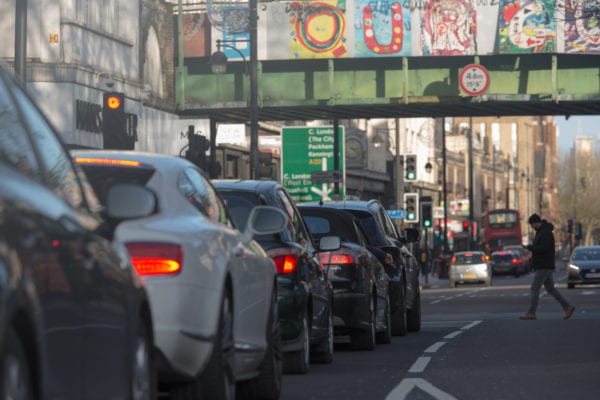A report written by King’s College London and released by a coalition of 15 health and environment NGOs claims that living within 50m (164ft) of a major road in the UK could stunt children’s lung growth by up to 14%, and increase lung cancer risk by 10%.
The report states that the levels of recorded roadside air pollution stunt lung growth in children by approximately 14% in Oxford, 13% in London, 8% in Birmingham, 5% in Bristol, 5% in Liverpool, 3% in Nottingham, and 4% in Southampton. One third (33%) of Londoners – around 3 million people – are estimated to live near a busy road.
This is the first time that such a wide range of health conditions and cities have been analysed in one report, with the research comparing 13 different health outcomes including cardiac arrest, heart disease, lung cancer, strokes and bronchitis across 13 cities in the UK and Poland (Warsaw, Wroclaw, Poznan, Bielsko-Biala).
Previous research has tended to concentrate on deaths or hospital admissions, but this report also includes symptoms that affect a larger number of people such as chest infections and reduced lung function in children.
The report goes on to claim that cutting air pollution by one-fifth would reduce the number of lung cancer cases by 7.6% in London, 6.4% in Birmingham, 5.9% in Bristol, 5.3% in Liverpool, 5.6% in Manchester, 6.7% in Nottingham, 6% in Oxford and 5.9% in Southampton.
Furthermore, the report claims that if pollution was reduced by one-fifth, there would be 3,865 fewer cases of children with bronchitic symptoms every year in London, 328 in Birmingham, 94 in Bristol, 85 in Liverpool, 85 in Manchester, 134 in Nottingham, 38 in Oxford and 69 in Southampton.
Ahead of the General Election on 12 December, the group is calling for all political parties to commit to adopting a legally-binding target to meet World Health Organization (WHO) guidelines for particulate matter pollution by 2030 and take steps to immediately reduce illegal air pollution across the UK.
The existing UK legal limits for particulate matter pollution (PM2.5) are still more than double the WHO guideline levels.
The group is also urging the introduction of a national network of clean air zones across the UK. London’s Ultra Low Emissions Zone, which launched earlier this year, has reduced the level of nitrogen dioxide by 29%.
Andrea Lee, clean air campaigns and policy manager at ClientEarth, said: “Toxic air puts an unfair burden on people’s lives. The good news is that solutions are available.
“The UK’s first clean air zone in London is already having an impact. But much more needs to be done to help people across the country move to cleaner forms of transport.
“To better protect people’s health, the next UK government also needs to raise the bar by making a binding commitment to meet stricter WHO guidelines by 2030.
“If politicians were not already convinced by the abundant evidence that air pollution seriously harms our health, could this new research be the tipping point?”
The full coalition of health and environment NGOs includes The Air Team, Asthma UK, British Lung Foundation, Clean Air 4 Schools, Clean Air Fund, Client Earth, Cycling UK, Environmental Defense Fund, Friends of the Earth, Living Streets, Mums for Lungs, Sustrans, UK Health Alliance on Climate Change, and UNICEF UK.
The full report can be downloaded here.





